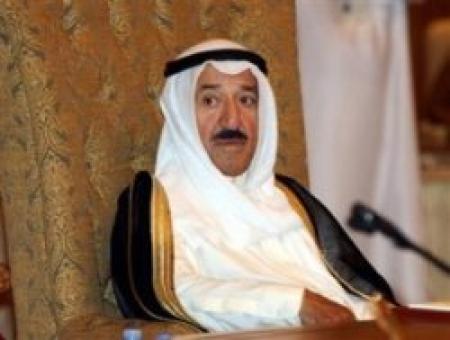ID :
118801
Mon, 04/26/2010 - 15:02
Auther :
Shortlink :
http://m.oananews.org//node/118801
The shortlink copeid
Kuwaiti emir rejects use of force to resolve Iran deadlock

Berlin, April 26, IRNA - Kuwait's Emir Sheikh Sabah al-Ahmad al-Sabah strongly rejected the use of force against Iran to solve the impasse over its nuclear program.
Talking to the daily Frakfurter Allgemeine Zeitung on Monday, the Kuwaiti leader said, "Kuwait has always stressed that it rejects the use of force against Iran."
He reiterated also Iran's right to have a nuclear program for peaceful purposes.
The Kuwaiti emir who is due to meet with German Chancellor Angela Merkel in Berlin later in the day, called also for the creation of a nuclear weapons-free zone in the Middle East.
Mideast countries view Israel's secret nuclear program as the biggest threat to regional stability and security. Israel's nuclear project has also been thorny for its closest allies, the United States and Germany since other countries, especially Muslim and non-aligned ones, accuse the West of hypocrisy in tolerating Israel's atomic buildup while condemning Iran for its nuclear activities which is under the full control of the International Atomic Energy Agency (IAEA).
In one of the world's worst-kept secrets, Israel has become a nuclear giant. It is estimated to have hundreds of atomic weapons, an arsenal that ranks it fifth among nuclear powers and dwarfs the programs of India, Pakistan and North Korea.
Though warning of the danger from other countries, Israel is the only nation that has ever brought the Mideast to the brink of nuclear war.
Yet it has maintained a policy of "deliberate ambiguity" about its own nuclear capabilities even as it bombed an Iraqi reactor in 1981 and pressured other countries to disarm./end
Talking to the daily Frakfurter Allgemeine Zeitung on Monday, the Kuwaiti leader said, "Kuwait has always stressed that it rejects the use of force against Iran."
He reiterated also Iran's right to have a nuclear program for peaceful purposes.
The Kuwaiti emir who is due to meet with German Chancellor Angela Merkel in Berlin later in the day, called also for the creation of a nuclear weapons-free zone in the Middle East.
Mideast countries view Israel's secret nuclear program as the biggest threat to regional stability and security. Israel's nuclear project has also been thorny for its closest allies, the United States and Germany since other countries, especially Muslim and non-aligned ones, accuse the West of hypocrisy in tolerating Israel's atomic buildup while condemning Iran for its nuclear activities which is under the full control of the International Atomic Energy Agency (IAEA).
In one of the world's worst-kept secrets, Israel has become a nuclear giant. It is estimated to have hundreds of atomic weapons, an arsenal that ranks it fifth among nuclear powers and dwarfs the programs of India, Pakistan and North Korea.
Though warning of the danger from other countries, Israel is the only nation that has ever brought the Mideast to the brink of nuclear war.
Yet it has maintained a policy of "deliberate ambiguity" about its own nuclear capabilities even as it bombed an Iraqi reactor in 1981 and pressured other countries to disarm./end





